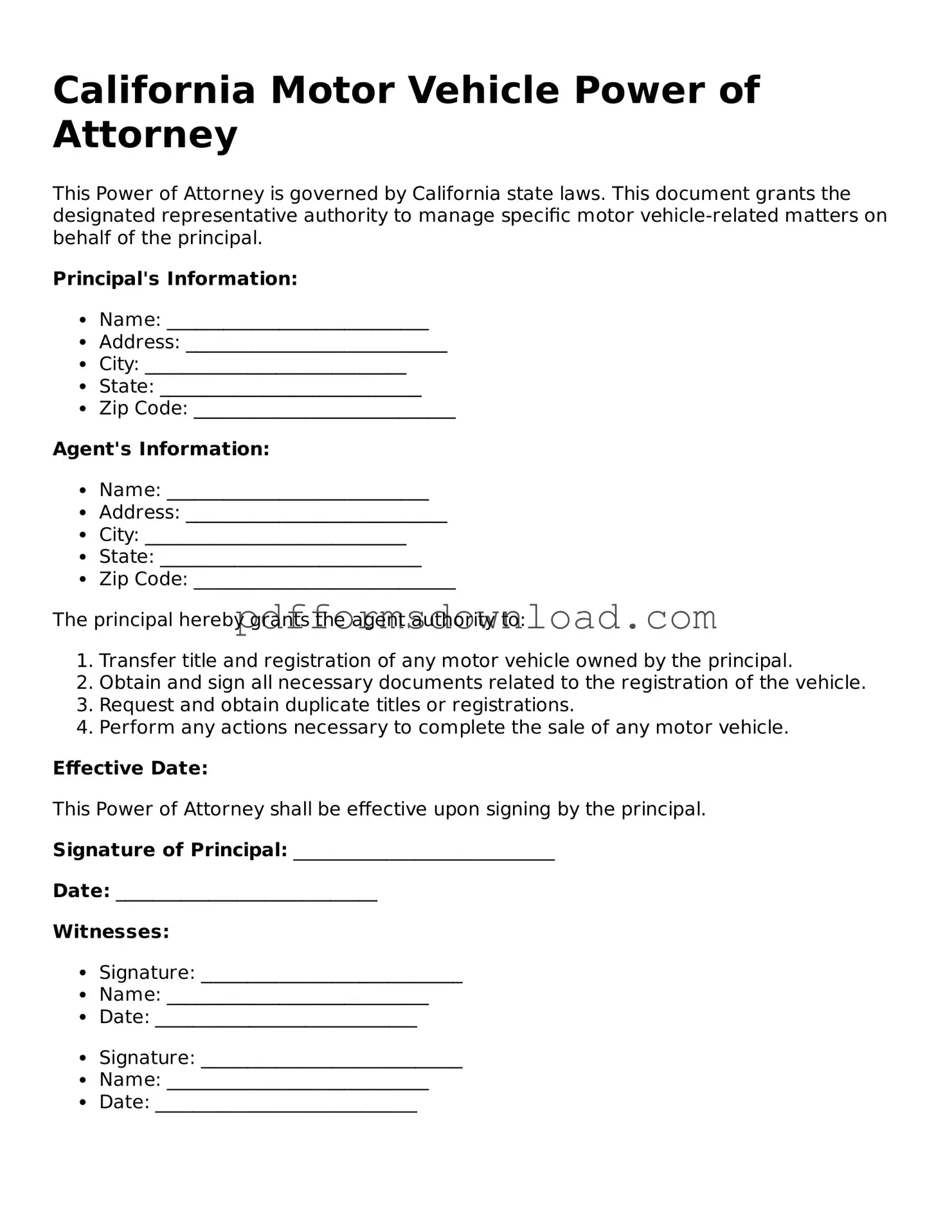Printable California Motor Vehicle Power of Attorney Form
The California Motor Vehicle Power of Attorney form is a legal document that allows one person to authorize another to act on their behalf regarding vehicle-related matters. This form is essential for anyone who needs to delegate responsibilities, such as transferring title or registering a vehicle. If you find yourself in need of this form, take the first step by filling it out—click the button below.
Make This Document Now

Printable California Motor Vehicle Power of Attorney Form
Make This Document Now

Make This Document Now
or
Free PDF File
Your form is almost ready
Complete your Motor Vehicle Power of Attorney online — edit, save, and download easily.